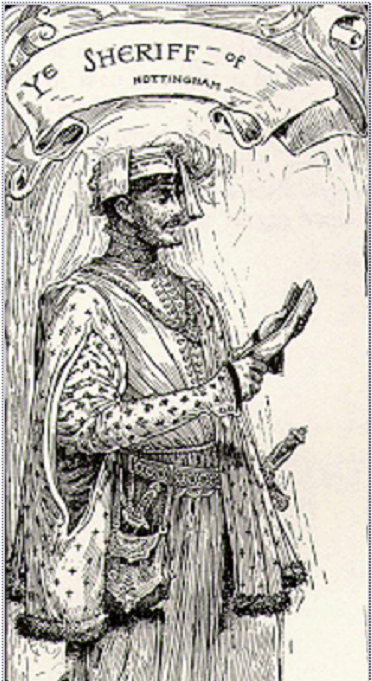

Is certain, from that period they continued to be appointed by the king at his pleasure, till the latter end In whatever manner the sheriffs might have beenĪppointed or chosen before the Norman conquest, it Statutes, returns juries, and makes return of writs for In his ministerialĬapacity, he executes writs and processes, proclaims To his judicial capacity, he hears and determines allĬauses, not exceeding forty shillings value, in his ownĬourt, called the county court, of which more hasīeen mentioned before, and he has also a judicial Peace he is, both by common law and by his commission, during his office, the first man in the county,Īnd superior in rank to any nobleman therein. Public peace, of which lie is within it the principalĬonservator, in aid of which he has the power of raising the posse comitatus and as keeper of the king's Is, to do the justice of his county, and to keep the 4) As such he is called by Ethelwerd, exactor regis, i. Necessaries, and they stocked and improved his manors in short, the sheriff was the king's farmer, orīailiff, and the collector of all his rents and revenues They provided the castles with ammunition and other His castles and manors lying within their bailiwick. King usually committed (together with the counties) Great power in the realm, having one or more counties committed to them by the king at his pleasure,Įither in custody or at a ferm certain. 3) They were usually men of high rank and Patent, committing custodiam comitatus to the sheriffĪlone. In nothing subject to the earl, the king, by his letters Still called vice-comes, is entirely independent of, and

Was laid on the sheriff, who, notwithstanding he is Immediate officer in his respective county, transactingĪll the king's business in it: for though the earl reserved the honour to himself, yet the whole labour Who was before only a deputy, and subordinate to theĮarl, as the earl was to the king, became the king's Merely titular or, by reason of their high employments, and attendance on the king's person, not beingĪble to transact the business of that county, were, by hisĪpprobation, freed from the trouble, and the sheriff, Is derived that of our modern earl) in process of time,Įither by their ceasing to be officiary, and becoming 2) These ealdormen, or, as they were afterwards called by the Danes, eorlas, (from which name Is mentioned likewise in the laws of king Edward theĬonsessor. To Edric Streon, ealdorman, or earl of Mercia, who One Normannus is mentioned as vice-comes, or sheriff Of this vice-comes, or sheriff, among his other ministers Īnd afterwards in this subscription- Ego Alfer vicecomes audivi. 876, where, in a grant of king Edric toĬrowland-abbey, about the year 984, mention is made That it was in being soon after may be learnt from Ingulphus, p. Modelled this realm into different shires and provinces. Have been constituted by that king, when he new This office of sheriff is supposed, by the best authorities, to People in their provincial, or county courts. provost, præfect, or steward, to distribute justice to the the shyrereeve, from the Saxon word gerefa, or gereva, i. To make deputies, who were called vice comites, or viscounts, and in their own tongue, sheriffs, i. Their own language, ealdormen, (and in Latin, comitesĪnd confules.) King Alfred, for the more ready administration of justice, allowed these ealdormen, or counts, Preside over their shires, whom they denominated in


Which, they constituted certain of their chief men to counties,)įramed the government of them from the antient constitution of the Romans, from whom it was derived to Language shires, and in Latin, comitatus, i. They divided this realm into provinces, (called in their IT has been already observed, that the Saxons, when


 0 kommentar(er)
0 kommentar(er)
